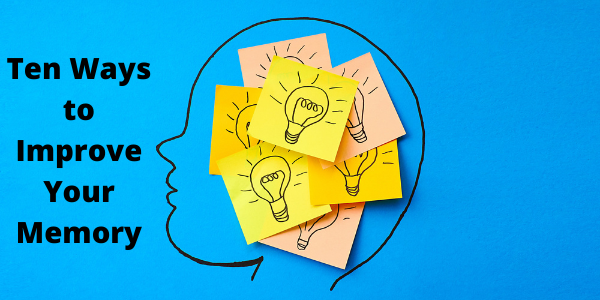How To Remember What You Read: Expert Tips for Enhancing Memory Recall
How To Remember What You Read: Learn strategies to enhance reading comprehension and retention. Focus on active engagement, summarization, visual aids, and spaced repetition. Prioritize quality over quantity to boost memory and learning outcomes.

Introduction
Hello, fellow enthusiasts of the written word and seekers of knowledge! Have you ever delved into the captivating pages of a book, only to find that the content slips away from your memory shortly after reading? You’re not alone in this struggle. It’s a common challenge faced by many. But fear not, as I’m here to unveil expert strategies that will empower you to remember what you read with remarkable precision.
As a specialist in mental health with a dedicated focus on memory enhancement, I’ve encountered numerous individuals grappling with this very issue. So, join me on a journey that will elevate your memory recall abilities and transform your reading experiences into unforgettable adventures!
Understanding How To Remember What You Read
Before we dive into the intricate world of memory enhancement techniques, let’s take a moment to unravel the fundamental process of remembering what you read. Our memory operates through three critical stages: sensory memory, short-term memory, and long-term memory.
Sensory Memory: Engage Your Senses To Remember What You Read
Do you remember the distinct aroma of a freshly printed book or the tactile sensation of its pages under your fingertips? These sensory impressions are manifestations of your sensory memory at work. Engaging multiple senses during your reading endeavors can significantly influence your ability to remember what you read.
Consider underlining important passages, scribbling down notes in the margins, or even reading passages aloud. These rich sensory experiences weave a multi-dimensional tapestry in your mind, securing the content in your memory.
Personal Anecdote: During my own academic pursuits, I employed a particular scented candle while studying various subjects. Over time, the mere aroma of that candle triggered a rush of associated memories, aiding me in retaining what I read.
Short-Term Memory: Focusing Your Efforts To Remember What You Read
Think of your working memory as a temporary notepad for your brain. It holds information temporarily before further processing. To prevent overwhelming your working memory, adopt the technique of chunking. By breaking down intricate concepts into manageable chunks, you effectively organize information, making it easier to recall.
Long-Term Memory: Repetition Is Key To Remember What You Read
Long-term memory acts as a repository for enduring memories. To transfer information from your working memory to this repository, repetition plays a pivotal role. Consistently revisiting your notes, summaries, or highlighted sections through spaced repetition strengthens the neural pathways associated with those memories, making information retrieval effortless.
Preparing Your Mind for Effective Reading and How To Remember What You Read
Now that we’ve grasped the core aspects of memory, let’s set the stage for effective reading and enhanced memory recall.
Set Clear Intentions: The Foundation of How To Remember What You Read
Before immersing yourself in the sea of words, establish clear intentions for your reading experience. Define your objectives – whether it’s gaining new insights, expanding your knowledge horizons, or immersing yourself in a captivating story. This purposeful approach primes your mind for heightened focus and enhanced memory retention.
Create a Distraction-Free Environment: A Vital Component To Remember What You Read
We’ve all experienced the frustration of losing our train of thought due to distractions. Cultivating a reading environment free from interruptions is essential. Silence your phone, find a cozy corner, and become one with the text – this enhances your reading experience and strengthens memory formation.
Active Reading Strategies: Techniques To Remember What You Read

Active reading is the secret sauce for supercharging memory recall. These dynamic techniques involve direct engagement with the material, making it stickier in your memory.
Annotation and Note-Taking: Personalizing Your Path To Remember What You Read
When you encounter captivating passages or thought-provoking ideas, seize the opportunity to annotate and jot down notes. This not only deepens your interaction with the content but also provides valuable cues for future memory retrieval.
Personal Anecdote: I vividly remember my immersive journey through a self-help book. My copy transformed into a canvas of doodles and notes, evolving into a personalized roadmap for memory recall.
Visualization: Painting Mental Pictures To Remember What You Read
Our brains thrive on imagery. Visualize the concepts you’re absorbing. Allow them to unfold like scenes in a movie, crafting vivid mental snapshots. This process establishes robust cognitive connections with the material, making it more memorable.
Summarization and Paraphrasing: Digest and Encode To Remember What You Read
After absorbing a section of text, challenge yourself to craft a concise summary in your own words. Paraphrasing enhances your engagement, reinforcing memory retention.
Mindful Reading Practices: A Mindful Approach To Remember What You Read
Mindfulness isn’t confined to meditation; it’s also a potent tool for enhancing memory recall during reading sessions.
Chunking Information: Breaking It Down To Remember What You Read
Imagine sorting puzzle pieces into categories. Similarly, chunking involves categorizing related information, creating memory compartments in your brain. As you absorb content, identify main points and their supporting details, mentally arranging them into coherent clusters.
Personal Anecdote: Picture preparing a complex recipe. By grouping ingredients and steps, you’re essentially chunking information. Later, when you recreate the dish, these mental chunks guide you effortlessly.
Self-Reflection and Connection: Making It Personal To Remember What You Read
Forge connections between the material and your personal experiences. Ask yourself, “When have I encountered something similar?” Establishing relatable links triggers emotional resonance, reinforcing memory retention.
Post-Reading Memory Enhancement Techniques: Strategies To Solidify What You Read
After navigating the material and employing active reading techniques, let’s ensure the knowledge stands the test of time.
Spaced Repetition: Time-Tested Memory Reinforcement
Engage in regular reviews of your notes and summaries, strategically spaced over time. Each review reinforces memory pathways, progressively enhancing your ability to remember what you read.
Retrieval Practice: Put Your Memory To The Test
At the conclusion of a reading session, challenge your memory by recollecting key points without external aids. This active retrieval strengthens memory associations, facilitating smoother future recollection.
Lifestyle Factors for Optimal Memory: Nurturing Your Memory Garden
Your lifestyle wields a profound impact on memory function. Let’s delve into habits that cultivate a thriving memory garden.
Sleep and Memory: Slumber’s Role In Remembering What You Read
Quality sleep acts as a memory maestro. During slumber, your brain orchestrates the transfer of information from short-term to long-term memory. Prioritize sleep to awaken with a refreshed memory reservoir.
Nutrition and Hydration: Fueling Your Cognitive Engine
A well-nourished brain operates at its zenith. Foods rich in antioxidants, Omega-3 fatty acids, and vitamins bolster cognitive prowess. Adequate hydration is equally pivotal; even mild dehydration can hinder memory and focus.
Mindfulness and Stress Management: Cultivating Calm For Remembering What You Read
Stress is a memory nemesis. It impedes information encoding and retrieval. Embracing mindfulness techniques, such as meditation and deep breathing, offers a path to alleviating stress and amplifying memory function.
Conclusion
Congratulations, you are now a memory virtuoso! This journey has taken us deep into the realm of memory enhancement while reading. Armed with an understanding of the memory process, active reading strategies, and mindful habits, you possess a formidable toolkit to remember what you read.
As you venture forth into the world of literature, let your memory become the ultimate storyteller in the narrative of your life. With each page you turn, with every scroll through digital texts, these techniques will illuminate your path, enhancing your memory recall abilities. Your mind, now a finely-tuned instrument, captures and preserves the essence of every word, every concept, and every idea.
As we conclude this article, remember that you hold the keys to unlock a world of enriched memory and cognitive prowess. The ability to remember what you read is not a distant dream; it’s a tangible reality within your grasp. Revel in the empowerment that comes from mastering this art, and let your memory be the bridge connecting you to the vast tapestry of human knowledge.
Now, armed with newfound confidence and an array of memory-enhancing tools, embark on your reading escapades. The journey has only just begun, and the pages of discovery await your exploration. Happy reading and even happier remembering!
Frequently Asked Questions
FAQ 1: Why do I often forget what I read shortly after finishing a book or an article?
Answer: Forgetting what you read is a common challenge due to the way our memory functions. When we read without actively engaging with the material, our brain may not create strong memory connections. Additionally, information overload and lack of repetition can lead to forgetting. By implementing active reading techniques, such as annotation, visualization, and summarization, you can enhance memory recall and retain more of what you read.
FAQ 2: Can setting intentions before reading really improve memory recall?
Answer: Absolutely! Setting clear intentions before reading helps focus your mind on the key takeaways. When you read with a purpose, your brain actively seeks relevant information to fulfill that intention, making it more likely to be encoded into memory. By identifying your objectives and connecting them to the content, you create a mental framework that enhances memory retention.
FAQ 3: How can I make sure I remember complex concepts and not just surface-level details?
Answer: To remember complex concepts, employ the technique of chunking. Break down intricate ideas into smaller, manageable chunks. Summarize each chunk in your own words, ensuring you understand the core concepts. Additionally, establish connections between new information and your personal experiences. Relating the material to real-life situations or emotions enhances understanding and memory consolidation.
FAQ 4: Is there a way to reinforce memory after finishing a reading session?
Answer: Yes, two effective techniques are spaced repetition and retrieval practice. Spaced repetition involves reviewing your notes and summaries at spaced intervals. This reinforces memory pathways and strengthens retention over time. Retrieval practice entails recalling key points from memory without looking at your notes. Testing yourself in this manner enhances memory recall by actively reinforcing connections in your brain. Incorporating these techniques post-reading can significantly improve your ability to remember what you read.
Related Memory Improvement Tips Posts
Brain Memory Improvement Techniques: Unlock The Potential
Memory Improvement Tips For Students



